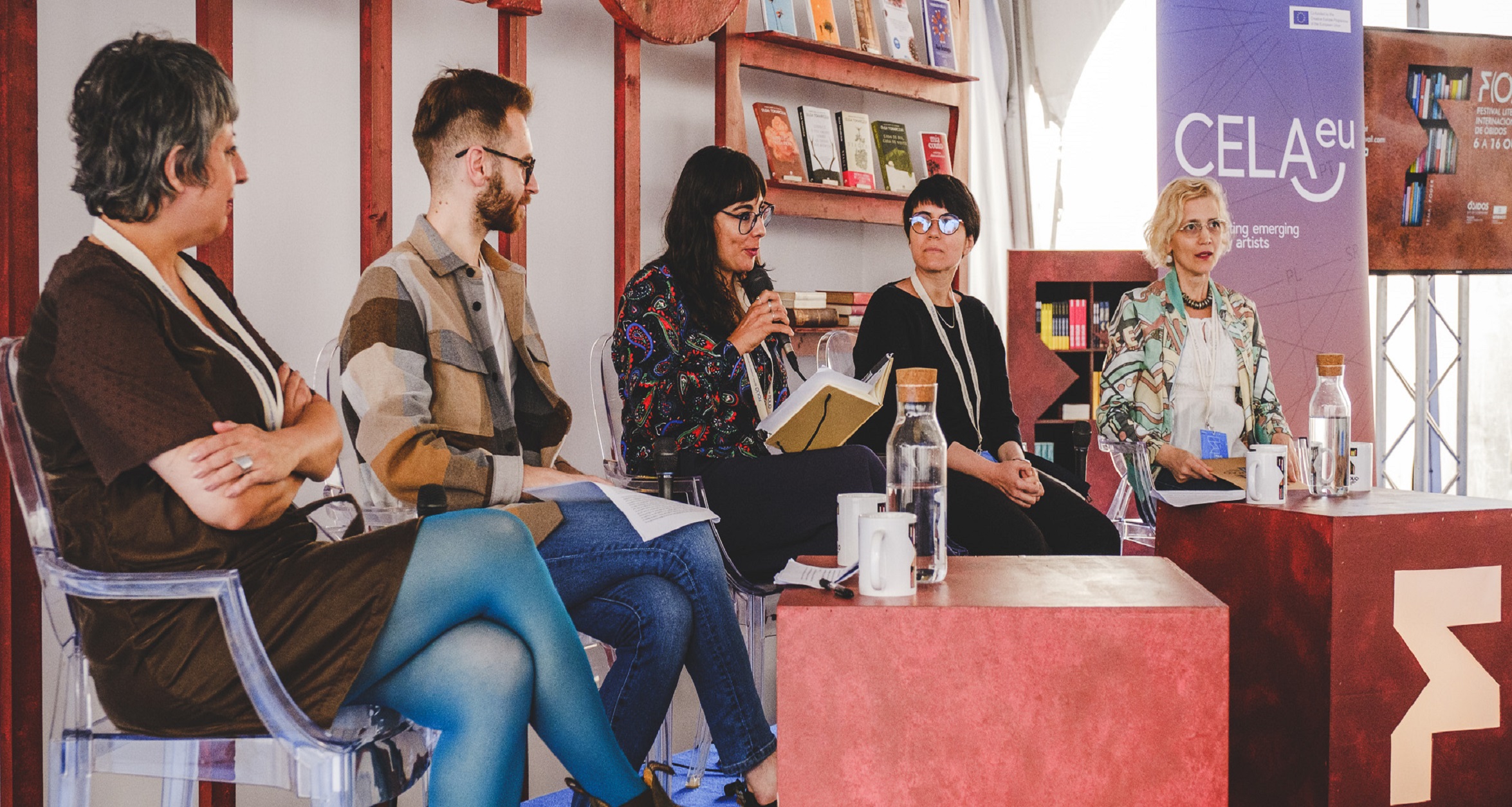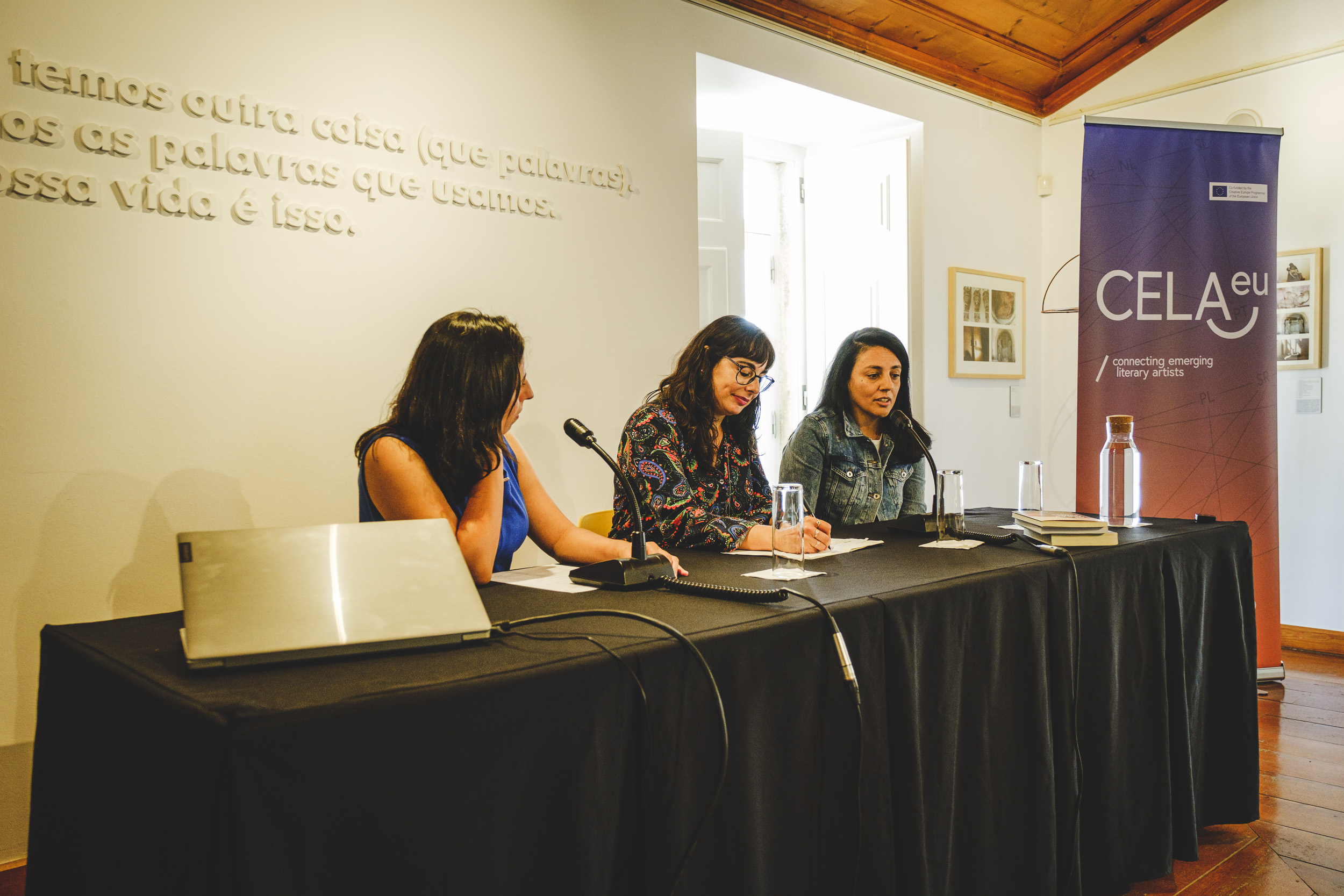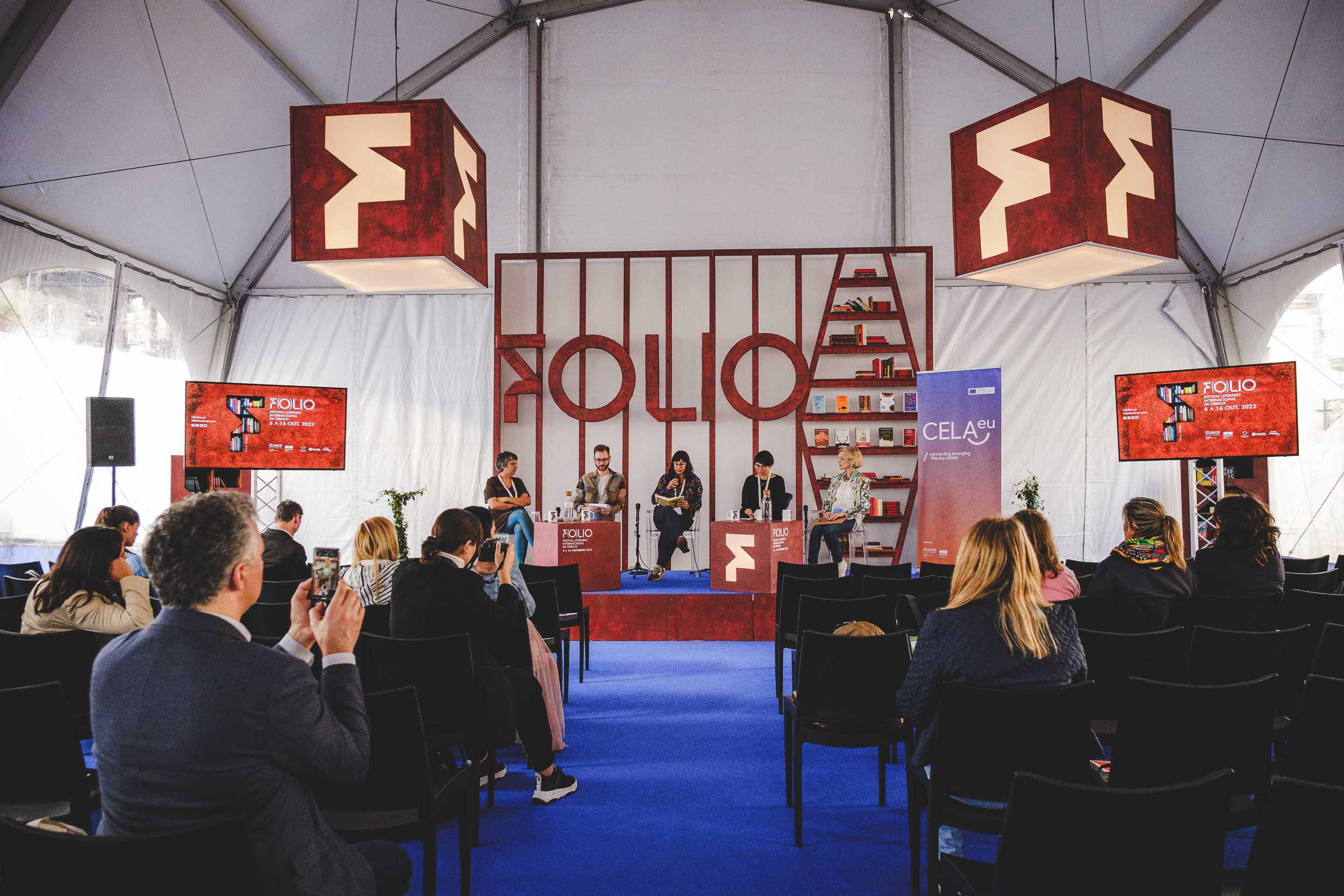Impressions from a translator - By Ilija Stevanovski, Translator SR-PT
So after two years of lockdowns and pandemics, we were finally able to travel abroad and continue our program activities live and see our numerous colleagues again, in person! After our Montage week in Madrid, where we spent wonderful and unforgettable five days, I finally set foot on Portuguese soil again in October last year.
The preparations were done months before, so I could only sit and wait for October to come, secretly frightened that some new strain might ruin our plans. I travelled with Jasna Dimitrijević, the Serbian writer whose texts I translated, and I felt we were the perfect writer-translator combo since we first met in Brussels, where we had a dynamic session with her about the first of her texts we were about to translate. No wonder we had such a good time in Portugal.
Following a whole day of flights and transfers, we arrived in Lisbon, where a car was waiting for us to take us to Obidos, a wonderful town in central Portugal, some 50 kilometers to the north of Lisbon. Both Jasna and I felt so important and powerful! The drive was pleasant and I was amazed by the tranquility all drivers showed in the highway at the rush hour. Definitely not something you can experience in Belgrade any day, any time. Anyway, Obidos, this is a town worth a separate blog post or even a series of posts, but since I don’t have that much time and space, I will just briefly say that the town has a perfectly preserved medieval fortress and a whole cute little town inside it, and it is absolutely breathtaking.
We stayed in a wonderful hotel just outside the fortress, and the basement of the hotel had a wonderful restaurant, where the famous Nobel Prize winners Olga Tokarczuk and Wole Soyinka were having their meals at a table next to ours! After our arrival, we spent the first night resting in our rooms and having a much needed quality night sleep, so we could enjoy the activities the day after. The next day was cloudy and cold, but it did not stop us from getting up early, getting out and getting to know (or to revisit) the historic city of Obidos. Located inside the fortress walls, the historic city has narrow streets covered in cobblestones, numerous small houses and buildings painted white with yellow edges, and there are many souvenier shops, restaurants and places of cultural and touristic interest such as cultural centers, galleries, libraries, an old church turned into a bookshop. A number of those establishments welcomed the many different activities of the Folio festival, and all of them were marked with a letter F with a characteristic design (the actual logotype of the festival) so all the visitors knew there was an event connected to the festival. In the center of the historic town, at the square, there was a huge Folio tent, where we were about to make our presentations later that day. The public was able to assist different activities such as book presentations, conferences, round tables, interviews with authors, and during our stay, there were many of them, so we couldn’t attend everything we wanted to see and hear, and the guests were many famous Portuguese writers, artists, critics, editors and other relevant people in the publishing industry of Portugal. The the activities of the day were usually closed off with a concert held by portuguese famous musicians and artists.
Later throughout the day the first session came, where portuguese writers Patricia Patriarca and Daniela Costa were presenting their work and their career paths in a conversation with Vanessa Rodrigues, a talented documentary journalist and journalism professor. We were all in the Jose Saramago Pavilion, and Jasna and I were getting slightly nervous, as our performance was the next. At the end of the first event, Carla, our coordinator, introduced Jasna and me to Vanessa, and we spent the break with her in a local bar nearby, trying the traditional ginginha (a sort of a cherry brandy, served in a small chocolate cup). Vanessa was well-prepared and we spent the break talking about the conversation we were going to have later at our event.
The ginginha we drank a couple of minutes before the beginning of our event made me feel a bit relaxed before our performance event. We headed to the Folio tent, and there were the portuguese writers, Lavinia Braniste, the Romanian author and Christina Visan, the Romanian translator, Patricia and Daniela, our coordinators from Camara Municipal de Obidos, and it really felt like a true CELA moment we lived a while ago in Madrid, just without the rest of our fellow writers and translators. Vanessa was really gentle to us, asking some really good questions, we talked about our career paths, our roles in the CELA project, all we learned throughout these years, the texts and the translations, our view and feelings about them, and it all made me feel really proud of myself and all our colleagues on the project and the things we done. The audience in the tent was also very interested, so they had a space to ask their own questions or share their thoughts after performing our texts and translations.
After an eventful day as this was, we continued to the hotel’s restaurant, where Vanessa, Jasna, Lavinia, Patricia and Daniela had dinner together, and continued talking about the literary industry, translations, current affairs, the differences between Portugal and Romania and Serbia, and we formed a small informal round table where I felt really blessed among women, as we say in Serbia, and all my interlocutors were so well-educated, intelligent and professionals in their fields of work that I felt once again really grateful for all these informal and backstage moments where we were able to share and gain so much knowledge, experience, emotions and memories with one another. And I think this is one of the greatest values CELA has given us.


